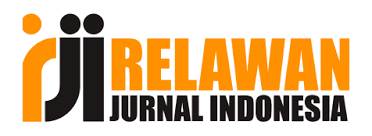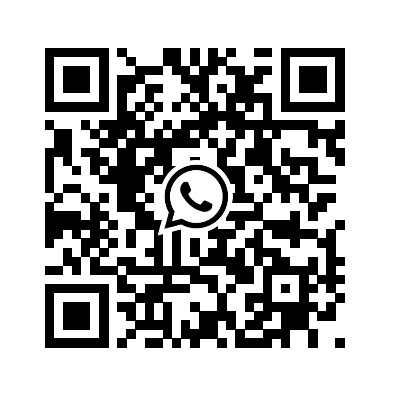Konseling Individu Berbasis Terapi Realitas: Strategi Meningkatkan Asertivitas Pada Gen-Z Di Era Digital
DOI:
https://doi.org/10.56013/jcbkp.v8i2.3901Keywords:
Transformation of Assertiveness, Reality Therapy, and the Digital EraAbstract
In today’s fast-paced digital era, Generation Z faces unique challenges in developing assertiveness, namely the ability to express oneself effectively while respecting the rights of others. This study aims to examine the effectiveness of applying reality therapy techniques in individual counseling to enhance the assertiveness of Generation Z in the digital age. This research employed a qualitative approach with Generation Z participants who engaged in individual counseling sessions using reality therapy. Data collection techniques included in-depth interviews, nonverbal behavior observation, personality inventory, assertiveness scale, and clients’ daily journals. The data were analyzed thematically to explore the counseling process and behavioral changes in assertiveness. The findings reveal that reality therapy effectively improves Generation Z’s assertiveness, indicated by better communication skills, the ability to set interpersonal boundaries, and constructive conflict management. Key factors contributing to success include personal responsibility awareness and social support. This study highlights the relevance of integrating reality therapy into counseling programs to strengthen assertive skills, psychological resilience, and social adaptability among Generation Z in the digital era.
References
Alaika Amaly Khaira, Gisella Aisyah, Hocky Nis Kharisma Dewi, Rahma Aniq Aulia, & April Laksana. (2024). Pengaruh Media Digital dalam Penggunaan Media Sosial Terhadap Pola Komunikasi Interpersonal pada Remaja. TUTURAN: Jurnal Ilmu Komunikasi, Sosial Dan Humaniora, 2(4), 357–366.
Andriani, N. (2016). Reality Therapy untuk Mengatasi Percaya Diri pada Anak Penyandang Disabilitas (Tunadaksa).
Aprilistya Alma, Azhari Charisma Vietra, & Pramesti Chintya Ayu. (2023). 79375-230161-1-Pb (1). Indigenous Knowledge, 2(2), 150–157.
Astinah. (2015). ASERTIF TRAINING MENINGKATKAN KOMUNIKASI INTERPERSONAL SISWA SMKN X. 3(1), 1–15.
Azmi, W., & Nurjannah, N. (2022). Teknik Assertive Training Dalam Pendekatan Behavioristik Dan Aplikasinya Konseling Kelompok: Sebuah Tinjauan Konseptual [Assertive Training Techniques in Behavioristic Approaches and Its Applications Group Counseling: a Conceptual Review]. Journal of Contemporary Islamic Counselling, 2(2), 101–112.
Creswell, J. W. (2016). Research Design: Pendekatan Kualitatif, Kuantitatif, dan Mixed. Yogyakarta: Pustaka Pelajar.
Dr. Umar Sidiq, M.Ag Dr. Moh. Miftachul Choiri, M. (2019). Metode Penelitian Kualitatif di Bidang Pendidikan. In Journal of Chemical Information and Modeling (Vol. 53, Issue 9).
Edy Susilo, M., Prayudi, P., & Yanu Florestiyanto, M. (2025). Oversharing Behavior in Gen Z on Social Media. SHS Web of Conferences, 212, 04022.
Fela Hadziqoh, Dyan Evita Santi, & Rahma Kusumandari. (2023). Perilaku asertif pada remaja di panti asuhan: Bagaimana peranan dukungan sosial dan konsep diri? INNER: Journal of Psychological Research, 3(3 SE-Articles), 375–388.
Herman Nirwana, M. S. N. S. M. (2021). Bimbingan Konseling Dan Implementasinya (Masalah Dalam Praktek Bimbingan Konseling Di Era Digital Dan Bagaimana Mengatasinya?). Inovasi Pendidikan, 8(1a), 23–28.
Janatin, R. P., & Kurnia, M. D. (2022). Upaya Pengembangan Karakter pada Generasi Muda di Era Digital. Jubah Raja (Jurnal Bahasa, Sastra, Dan Pengajaran), 1(2), 109–115.
Kirana, D. L., Mutiah, R., & Prayona, B. A. (2024). The Effectiveness of Assertive Training in Improving Assertive Behaviour in Peer Counselors. PSIKOPEDAGOGIA Jurnal Bimbingan Dan Konseling, 13(2), 107–114.
Maharani, A. P., Widiyanarti, T., Meilina, A., Lestari, D. A., & Aidilia, Z. (2025). Kebudayaan Gen Z : Kekuatan Kreativitas di Era Digital. 1, 1–10.
Manullang, J. G. (2024). Peran Generasi Muda di Era Digitalisasi 5.0. Wahana Dedikasi: Jurnal PkM Ilmu Kependidikan, 7(1), 164–168.
Maullasari, S. (2021). Reality Counseling Approach As a Preventive Effort for People With Disabilities. Pamomong: Journal of Islamic Educational Counseling, 2(2), 86–101.
Mela, L. M., & Ichsan, I. (2023). Assertive Behavior of Adolescents in Psychology Perspective of the Qur’an. Psikoislamedia : Jurnal Psikologi, 8(1), 11–19.
Musfiroh, Y., Syahid, A., & Airlangga, D. Z. (2024). Machine Translated by Google Pengaruh Pola Asuh , Kepribadian Big Five dan Gender terhadap Ketegasan Remaja Machine Translated by Google. 8(2), 157–176.
Nafs, S. K., & Nurjannah, N. (2022). Konseling Individu Melalui Pendekatan Terapi Realitas Untuk Remaja Yang Kecanduan Gadget Individual Counseling Through Approach Reality Therapy for Those Who Gadget Addiction. Jurnal Bimbingan, Penyuluhan, Dan Konseling Islam, 5(2), 109–122.
Rahayu, P. (2019). Pengaruh Era Digital Terhadap Perkembangan Bahasa Anak. Al-Fathin: Jurnal Bahasa Dan Sastra Arab, 2(1), 47.
Rahman, D., Masril, M., Nelisma, Y., & Dasril, D. (2022). EFEKTIFITAS KONSELING KELOMPOK REALITAS TERHADAP PROKRASTINASI AKADEMIK SISWA KELAS VIII MTsN 6 PADANG. Jurnal Mahasiswa BK An-Nur : Berbeda, Bermakna, Mulia, 8(1), 148.
Ridho, M. (2016). Konseling di Era Digital: Nilai dan Etika Konseling Sosial dalam Konteks Perubahan Sosial. Lentera, XVIII(1), 109–122.
Sadewa, I., Mutakin, F., & Triana, D. (2022). Meningkatkan Asertifitas Dengan Teknik Role Playing Pada Siswa. Jurnal Consulenza : Jurnal Bimbingan Konseling Dan Psikologi, 5(2), 85–95.
Setyowati, P. A., & Dwikurnaningsih, Y. (2014). Meningkatkan Perilaku Asertif Siswa Kelas X Sma Kartika Iii-1 Banyubiru Melalui Layanan Bimbingan Kelompok. Satya Widya, 30(1), 8.
Syafiq, M., & Taufikkurahman, T. (2024). Terapi Realita dalam bingkai Konseling sebagai Proses Penyesuaian Diri Santri di Ponpes Roudlotul Mustofa Al Banjari, Amuntai Kalimantan Selatan. QUANTA: Jurnal Kajian Bimbingan Dan Konseling Dalam Pendidikan, 8(1), 67–74.















